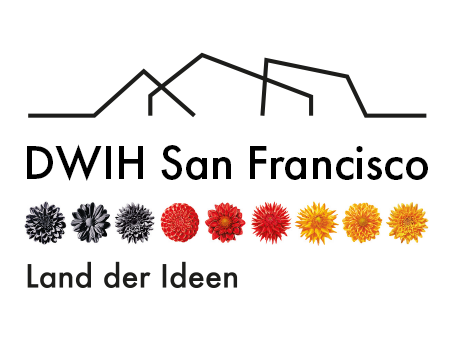Beyond Generative AI: Innovative Germany Seminar

This seminar presents an invaluable opportunity for Silicon Valley and Bay Area researchers and innovators to connect with representatives from Germany’s innovation and excellence clusters. It aims to strengthen partnerships and foster research collaborations with Germany in strategically important areas.
Address
2594 Hearst Avenue, Berkeley, CA 94720
Please note the event will be recorded. By attending, you agree to potentially being recorded.
Agenda
15:00 Registration
15:30 Welcome Remarks: Oliver Schramm, German Consul General in San Francisco
15:40 Presentation “Innovative Germany”
16:00 Short introduction to the state of AI in Germany
16:10 “Pioneering AI Research and Innovation: The Role of Hessian.ai in Shaping the Future of Artificial Intelligence”, Prof. Dr. Ing. Mira Mezini
The Hessian.AI research aims at developing the foundations for a new generation of neuro-symbolic AI systems, which we call Reasonable Artificial Intelligence (RAI). This new form of AI will learn in more reasonable ways, with models being trained in a decentralized fashion, continuously improving over time, building an abstract knowledge of the world, and with an innate ability to reason, interact, and adapt to their surroundings. Based on cutting-edge research, hessian.AI’s mission is to bring AI into the mainstream and make it not only accessible but also understandable for research, industry and society, in order to consider opportunities and risks in equal measure.
30 Min including Q&A
16:40 “Advancing AI for Scientific Discovery: Innovations and Impact from the Leibniz AI Lab,” Prof. Dr. Sören Auer
The “International Leibniz Future Laboratory for AI” at L3S Research Center in Hanover brings together global researchers to advance AI, focusing on neuro-symbolic AI and applications in scholarly communication, personalized medicine and enterprise knowledge integration. Supported by the BMBF, the lab develops intelligent, responsible systems using cutting-edge technologies. It aims to become a central hub for AI innovation in Germany and Europe through international collaboration.
30 Min including Q&A
17:10 Breakout rooms (Cluster 1 stays in Auditorium 310, Cluster 2 moves to Room 250)
18:00 Reception at atrium of the auditorium (3rd floor)
20:00 End of Event
Why You Should Attend
- Open to all – students, the research community, and the general public.
- Learn about Germany’s innovation landscape – Discover the latest advancements and strategic initiatives that position Germany as a global hub for AI and innovation.
- Expand your network—Connect with alumni, expats, and leading figures in German AI clusters, including experts in data science, knowledge engineering, cybersecurity, and more.
- Become an advocate for innovation. Join a global network of innovators driving research and cooperation between the U.S. and Germany.
Key Program Elements
- Introduction to Germany as an Innovation Location – Gain insights into Germany’s approach to fostering research and innovation across various sectors.
- Networking Session—This is an interactive opportunity to meet alums, researchers, and leaders from critical German innovation and excellence clusters, particularly in AI.
Featured Experts and Research Topics

Oliver Schramm heads the German Consulate General in San Francisco. From 2017-2021 he served as Minister for Economic and Global Affairs at the German Embassy in London. From 2014-2017, he served at the Federal Ministry of Foreign Affairs in Berlin as the Head of Division for German Schools Abroad and International Sports Cooperation. His various roles within the Federal Ministry of Foreign Affairs have stationed him in Seoul, Boston, Washington/DC, Rome, Lima and London. Oliver began his professional career in 1991 working first in the Political Department of the Ministry of Foreign Affairs in Bonn and then in the Federal Chancellery as a member of the Chancellor's speech-writing group from 1995-98. He studied at Harvard from 2001-2002 and received an MPA from Harvard's Kennedy School of Government.Oliver Schramm

Zahar Barth-Manzoori is the Director of the German Center for Research and Innovation (DWIH) in San Francisco. After completing her doctorate in Middle Eastern Studies at the Christian-Albrechts-Universität zu Kiel – supported by a scholarship from the German Academic Scholarship Foundation – she began working at the DAAD in Bonn in 2011 as head of the Events and Visitor Programs Department. In 2015, she took over the position as Head of Section Joint Scholarship Programs Middle East, North Africa, returning to her professional roots. From May 2020 until her departure for San Francisco, she played a leading role in setting up DWIH San Francisco as head of the DWIH management office at DAAD. As an experienced science manager and passionate networker, she is particularly looking forward to initiating international university collaborations, fostering knowledge transfer between research, business and society, and supporting research-based innovation in San Francisco.Zahar Barth-Manzoori

Prof. Dr. Ing. Mira Mezini is a professor of Computer Science at the Technical University of Darmstadt. She is founding co-director of hessian.AI, one of Germany’s most prominent AI clusters, and representative of TU Darmstadt in the board of National Research Center for Applied Cybersecurity (ATHENE). She is an expert in software methods, specifically in programming and software analysis methods for and with AI systems, software security, and distributed resilient software. Her work at the intersection of AI and software methods addresses topics in both directions: Programming methods for AI systems and AI methods for automated software engineering. She is member of the senate of the German Research Foundation (DFG) – the most important founding body of basic research in Germany -- and also closely associated with the European Research Council – the most prestigious European basic research funding agency.Mira Mezini

Prof. Dr. Sören Auer is the Director of the TIB Leibniz Information Centre for Science and Technology as well as Head of the Data Science and Digital Libraries research group and board member at L3S Research Center, Leibniz University of Hannover. Prof. Auer's work centers on semantic technologies, knowledge engineering, and big data analytics. He has been instrumental in developing projects such as DBpedia (the semantification of Wikipedia) and the Open Research Knowledge Graph (ORKG). His research drives advances in neuro-symbolic AI-powered knowledge systems, which are critical for innovation in industries like digital libraries and data infrastructure. Prof. Auer is closely associated with the German Research Data Infrastructure (NFDI) and the European Open Science Cloud (EOSC), which are critical initiatives for open data and AI-driven research collaboration.Sören Auer
Informationen zur Veranstaltung
7. November 2024, 15:00 bis 19:00 Uhr
CITRIS and the Banatao Institute
Veranstalter: DWIH, BMBF
